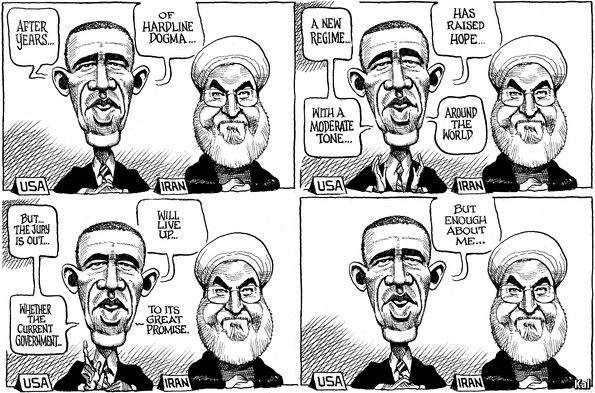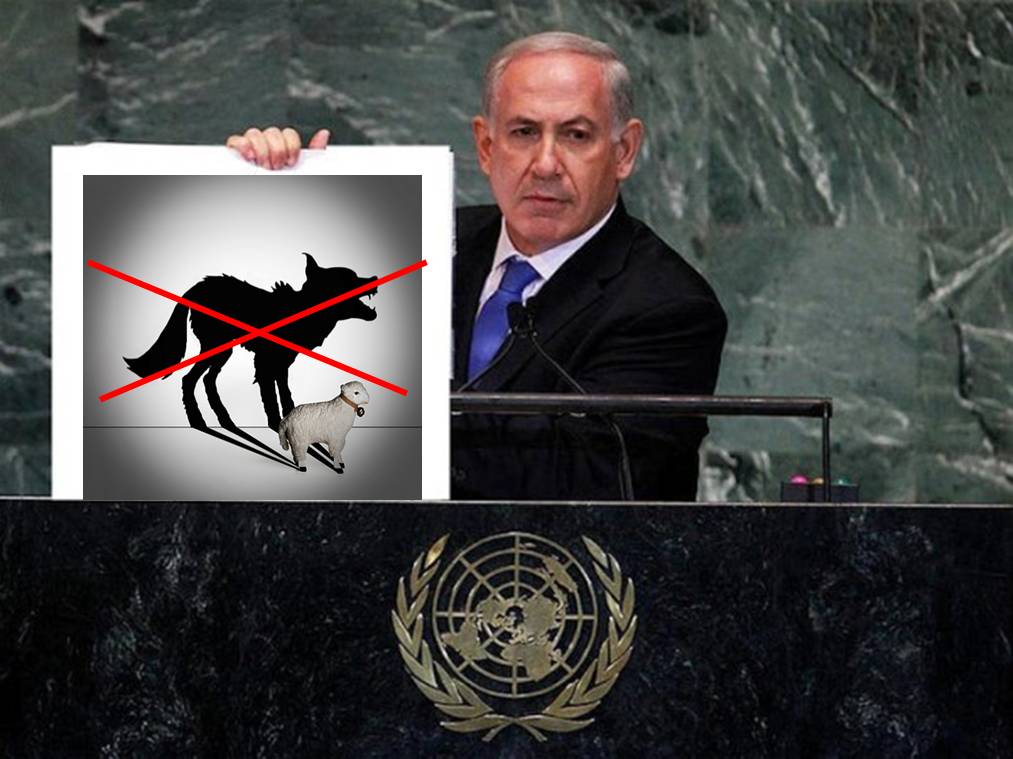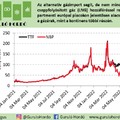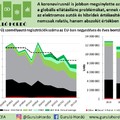If a Martian landed on Earth, it would be greatly surprised that the US is an ally of Saudi Arabia and an enemy of Iran. History is the explanation, but fundamentals have a tendency to reassert themselves in the long run…
By István Zsoldos and Diána Szőke
Saudi Arabia, where women are third-class citizens
Saudi Arabia is one of the toughest authoritarian regimes, with no meaningful parliament or voting and an appalling record of human rights. Women are treated as a second- (or rather third-) class citizens – they cannot drive cars for starters, which is not banned anywhere else on the planet (though who knows for how long…). Domestic violence was not a crime until August this year.
Most of the people who carried out the 9/11 attacks were Saudi citizens, and the man on the street is not necessarily apologetic about this (although the leadership is, grudgingly)… The country is changing, but it remains an essentially medieval/tribal society, and many of the reforms come from the top.
Iran feels more “Western”
Iran feels different. Sure, it is an authoritarian regime too, and the unelected Guardian Council and Supreme Leader yield the most influence. But there a parliament (the Majlis) and voting can make a difference – as it just did –, thanks to which the current president is a lot more moderate than the previous one.
Women seem to be far less oppressed than in Saudi Arabia and a larger proportion of them attends secondary school (96% versus 88%). Also, more people go to university in Iran (49% versus 41% of the relevant age group). Iran’s fertility rate (1.9 children per woman on average) is definitely Western - in Saudi Arabia the number is still 2.8, although it’s declining quickly there as well.
![capt.photo_1244860564233-1-0[1].jpg](https://m.blog.hu/gu/gurulohordo/image/capt.photo_1244860564233-1-0%5B1%5D.jpg) Women in Iran make their voices heard. Source: http://www.radosh.net
Women in Iran make their voices heard. Source: http://www.radosh.net
There are further intangible clues: the old men in suits playing chess in Tehran’s parks and the rebellious students taking part in demonstrations all feel very recognizable to a Westerner. Iran’s population (especially the more educated part) is relatively pro-US, given the level of animosity between the countries. Iran is changing too, but it is a bottom-up process, resisted (so far) by the leadership.
So seemingly the natural ally of the US would be Iran, and not Saudi Arabia.
History intervenes
But history so far has been cancelling out fundamental drivers. Iran is a proud country, one of the oldest major continuous civilizations on the planet. Its recent history has been dominated by oil, against the backdrop of a power struggle between foreign powers, secularists and religious fundamentalists. British Petroleum (BP) started out there more than 100 years ago under the name of Anglo-Persian Oil Company, and the US and the UK organized a coup in 1953 against a prime minister who nationalized the oil industry and wanted less power for the Shah.
The 1979 Islamist Revolution was partly an independence movement against the US (the “Great Satan”), and holding the US embassy staff hostage for more than a year (or the “Conquest of the American Spy Den” in another interpretation) certainly left some lasting scars on relations… And we haven’t even mentioned former Iranian president Ahmadinejad’s genocidal rhetoric towards Israel or Iran’s not-so-secret funding of Hezbollah, Lebanon’s Shia party-cum-militia, or the Assad regime in Syria. The fact that Iran seemingly wants to develop nuclear weapon capabilities is just the latest, and for the US very worrying, straw.
Of course, practical interests even in the past could sometimes overwrite diplomatic enmity. Case in point: the Iran-Contra affair of the 1980s, when the US covertly sold arms to Iran (under an arms embargo at the time), and then used that money to finance the Contra rebels in Nicaragua.
The history of US-Saudi relations was certainly no smooth sailing all the time either, but there has been an unspoken understanding of mutual dependency: a security umbrella in exchange for being a responsible “central banker” in the global oil markets. Saudi Arabia has been maintaining spare capacity in order to try to stabilize prices when oil supply is disrupted, and cut oil output when the oil price is deemed too low – something US oil firms could not legally (and would not economically) do.
Will Rouhani be a Persian Gorbachev?
Maybe the difference between the US-Iran and the US-Saudi relationship boils down to historical accidents which perpetuated the different paths. Oil was discovered later in Saudi Arabia than in Iran, and the territory was not a particularly exciting target for colonialization before that, being a barren desert. Iran, on the other hand, has for centuries been a subject of heated imperial competition, possessing oil and being in the buffer zone during the Great Game between the British Empire and Russia, and later between the US and the Soviet Union. Geography is destiny…
But can fundamentals eventually overcome history? The new Iranian president certainly tries to be more conciliatory towards the US and also Israel. Rouhani delivered an English-language TV message to US viewers, greeted Jews on the occasion their new year, said that the Holocaust was a historical fact (well, in some countries that counts as an improvement), and there was even some preparation for a personal meeting with President Obama at the UN (which did not materialize in the end).
 KAL's cartoon in The Economist says it all. Source: economist.com
KAL's cartoon in The Economist says it all. Source: economist.com
The US and Israel would never trust Iran completely unless the current regime is dismantled. And currently the Iranian regime is not prepared to give up its nuclear program altogether anyway (let alone dismantle itself). But Rouhani could turn out to be the Gorbachev of Iran: a reformist president who sets in motion changes that it later cannot control and inadvertently helps to break down the regime. There is popular discontent, and the oil embargo is hurting. Maybe that is why the Guardians allowed a more moderate presidential candidate to run at all…
Fundamentals have a tendency to reassert themselves. There are of course no guarantees, popular sentiment in Iran can change as well (say, because of an Israeli bombing raid), or the oil embargo can leak or be eased, easing pressure on the regime.
But the likelihood is that sooner or later Iran will turn more pro-Western, pro-Israel and more democratic, maybe suddenly. Oil money prolonged the regime’s lease on life, as it did in the Soviet Union. But the oil embargo in Iran may be playing the role that the 1980s oil price decline and arms race did in the Soviet Union.
If it took the Soviet Union, one of the world’s two superpowers during the Cold War, a mere few years to collapse completely, the transformation of Iran as a medium-sized power in a globalized, interconnected world could be even quicker. After many false dawns, weary observers may again miss an imminent change… Just as few expected the détente currently unfolding in Burma.
What would be the consequences of an Iranian regime change and détente with the West? They could be huge – and we will come back to that in a separate post…
 Netanyahu cries wolf. (The picture is just an illustration).
Netanyahu cries wolf. (The picture is just an illustration).
Iran: Nuclear smoke and mirrors?
The most recent tide of bad news from the Middle East (from the chaotic Syrian civil war and constitutional deadlock in Egypt to unrest in Libya and rising violence in Iraq) seem to have overshadowed more promising developments coming out of Iran over the past few months. President Rouhani was elected with a clear majority in June, and is generally seen as a reformer (at least compared to the other candidates…). He has already made some conciliatory gestures: he appointed a more moderate cabinet, released some prominent political prisoners in September, and even appeared on NBC to say that Iran would never build nuclear weapons. Nuclear negotiations between Iran and the so-called P5+1 of world powers (the UN Security Council’s five permanent members and Germany) will continue this week, with Iran set to unveil a new negotiation team. President Rouhani recently said he wants to reach a deal on Iran’s nuclear program rather quickly, in just 3 to 6 months.
Of course, suspicions abound over Iran’s true motives: some claim Iran simply feels backed into a corner by biting economic sanctions, while the Israelis warn Iran may just be buying time before it reaches full enrichment capacity. And everyone knows that it is ultimately the Supreme Leader who calls the shots. Nonetheless, any dialogue between Iran and the West would be a welcome change, and could potentially ease the Sunni-Shia divide that has become one of the major regional fault lines of the Middle East over the past decade.
A bejegyzés trackback címe:
Kommentek:
A hozzászólások a vonatkozó jogszabályok értelmében felhasználói tartalomnak minősülnek, értük a szolgáltatás technikai üzemeltetője semmilyen felelősséget nem vállal, azokat nem ellenőrzi. Kifogás esetén forduljon a blog szerkesztőjéhez. Részletek a Felhasználási feltételekben és az adatvédelmi tájékoztatóban.




